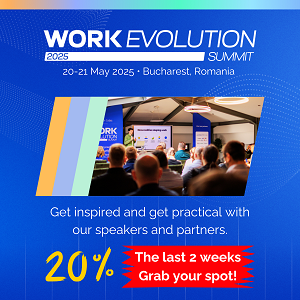The year 2025 is expected to bring significant challenges for the business environment and companies worldwide. Boston Consulting Group (BCG) highlights five of the most critical issues that nearly all business leaders will face this year. These challenges were identified based on discussions with over a thousand executives globally and are detailed in the report “Five Dynamics That Will Test CEOs in 2025.”
 “The way leaders navigate these changes will be defining for their future, decisively influencing whether their businesses will thrive or decline in the coming years,” said Laszlo Juhasz, Managing Director and Senior Partner at BCG.
“The way leaders navigate these changes will be defining for their future, decisively influencing whether their businesses will thrive or decline in the coming years,” said Laszlo Juhasz, Managing Director and Senior Partner at BCG.
The five major challenges are categorized as follows:
• Tariffs, Competitiveness, and the Rise of the Global South
In 2025, rising trade tariffs will become a reality in many markets, affecting supply chains, market access, and corporate costs. U.S. President Donald Trump has already announced tariff increases, raising concerns about potential retaliatory measures, which could further deepen state intervention in the economy. In this context, business leaders must anticipate the impact on their strategies to maintain competitiveness. Meanwhile, the Global South—comprising 133 emerging economies in India, Southeast Asia, and Africa—is strengthening its economic influence, offering new growth opportunities in these markets.
• Artificial Intelligence
Two years after ChatGPT reshaped industries, artificial intelligence (AI) and generative machine learning models remain top strategic priorities for 75% of business leaders, ranking among the top three objectives for 2025. Despite substantial investments in AI, financial benefits are not yet fully evident, and success depends on direct involvement from company leaders. To maximize impact, BCG recommends focusing on a limited number of high-impact AI initiatives and adapting organizations to necessary changes, which can lead to 2.3 times more efficient implementation and higher ROI.
• The Rising Cost of Climate Inaction
The transition to reducing emissions and adapting to climate change remains a global challenge. While the EU, Japan, and China continue to accelerate green innovation, the U.S. appears to be easing regulations on renewable energy. Inaction exposes companies to growing climate risks, and BCG estimates that extreme weather events could reduce global EBITDA by 25% over the next 25 years. Despite these risks, many businesses underestimate the economic impact of climate change, potentially facing major financial losses due to natural disasters such as floods, hurricanes, droughts, and wildfires.
• Cost Management as a Growth Driver
Effective cost management not only improves current performance but also secures a company’s long-term future. 67% of business leaders surveyed by BCG believe cost savings should be reinvested in innovation and growth. However, 40% of executives feel unprepared for a potential economic shock in 2025, and many fail to achieve their cost-cutting goals. BCG warns that quick, top-down cost-cutting measures are unsustainable, likening them to crash diets—effective in the short term but likely to revert. Instead, leaders should adopt a long-term strategy, restructuring operational models and fostering a cost-conscious culture based on transparency and employee involvement to build a more resilient and efficient organization.
• The Unifying Role of Business Leaders
Political and social polarization is increasingly spilling into workplaces, undermining team cohesion and company performance. Business leaders can act as unifiers, creating safe, collaborative environments where civil discourse and psychological safety are prioritized. To reduce divisions, leaders must monitor controversial political and social issues and develop strategies to address them within their companies. Cultivating a culture of tolerance and defining a clear framework for when and how to engage in sensitive issues—aligned with corporate values and business objectives—can help maintain stability.
“The year 2025 will test business leaders in unprecedented ways. Those who take a proactive approach, strategically invest in technology, manage costs with a long-term vision, and remain flexible in the face of economic and climate shifts will strengthen their market position,” added Laszlo Juhasz. “In contrast, those who react slowly or ignore these transformations risk being left behind.”
The full report can be accessed here.






























